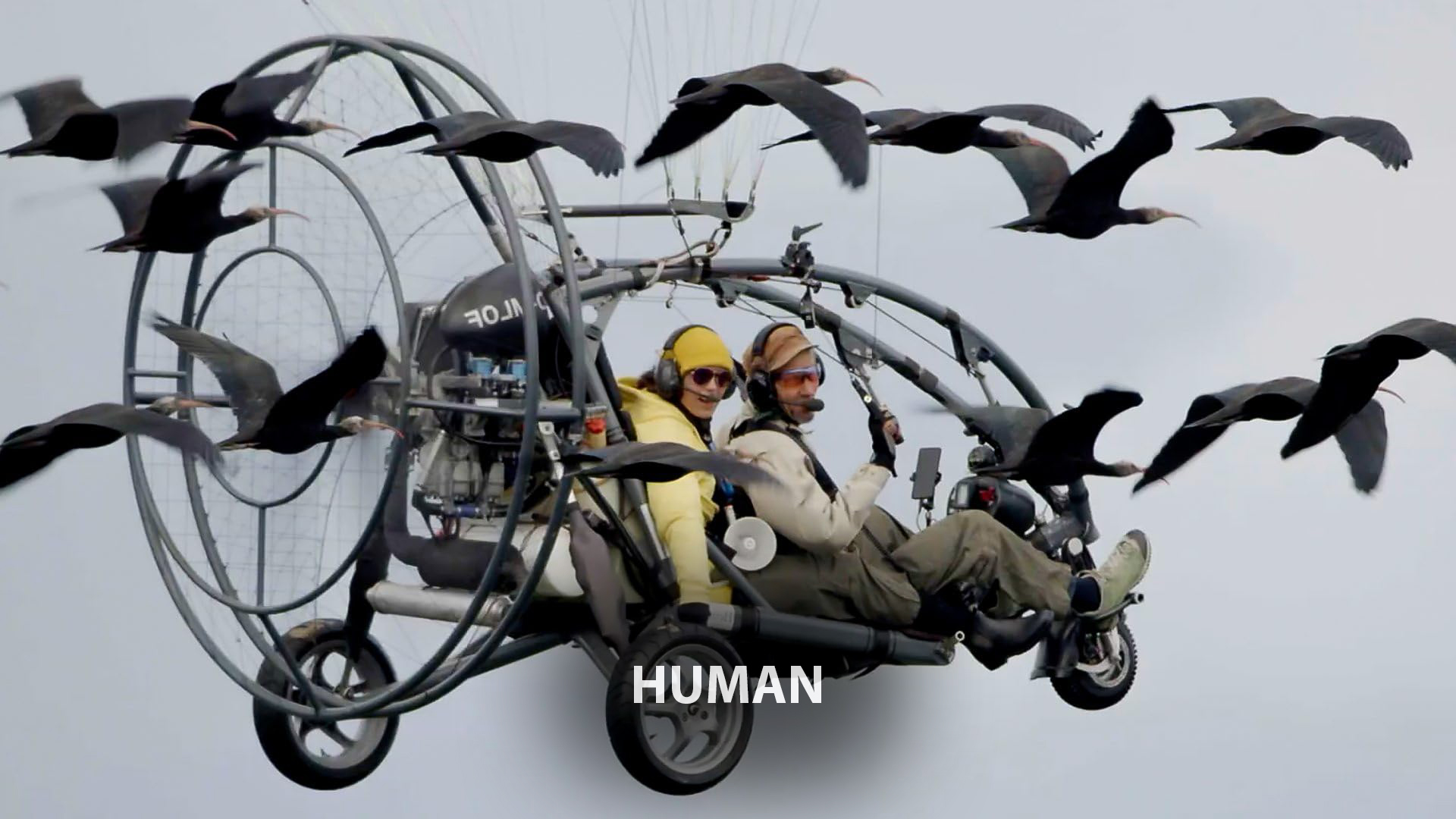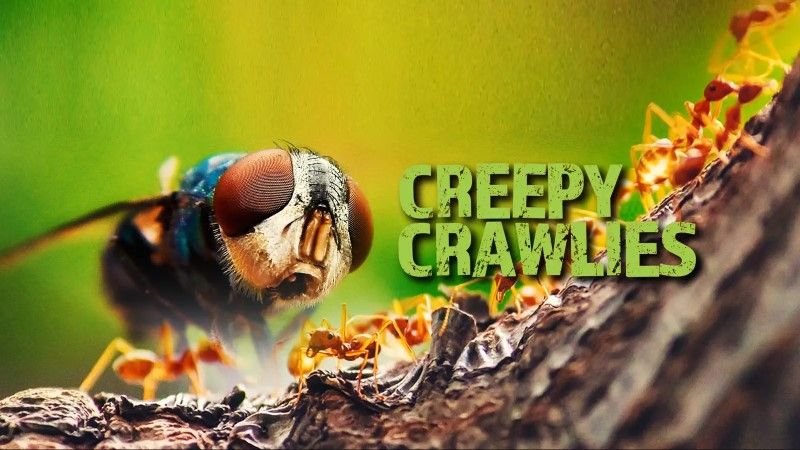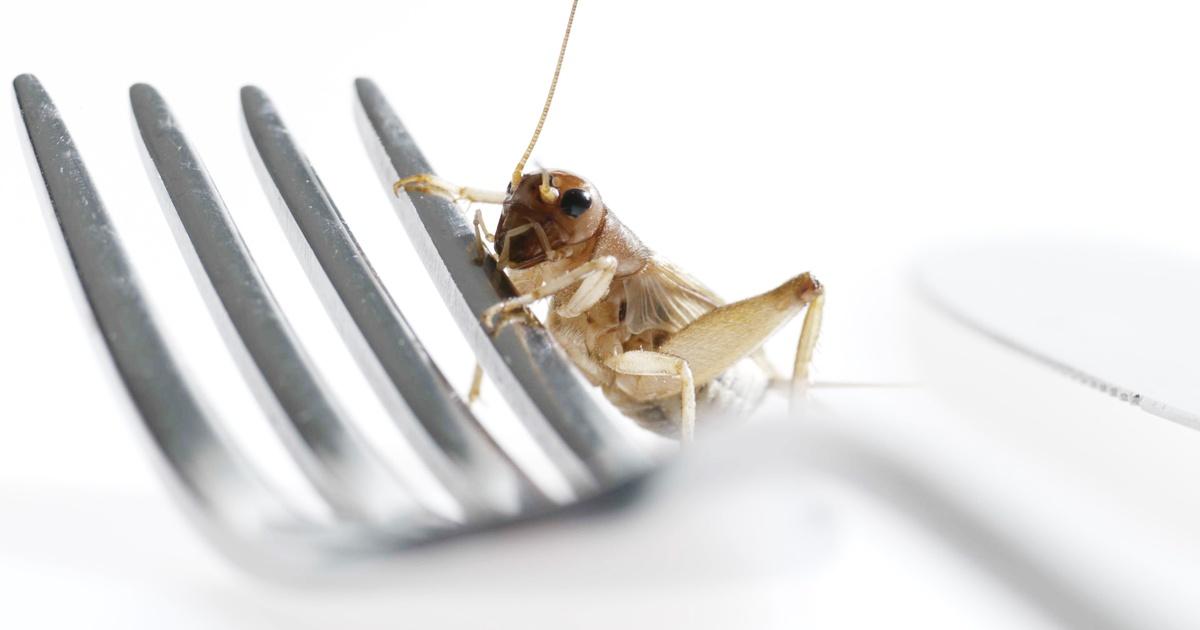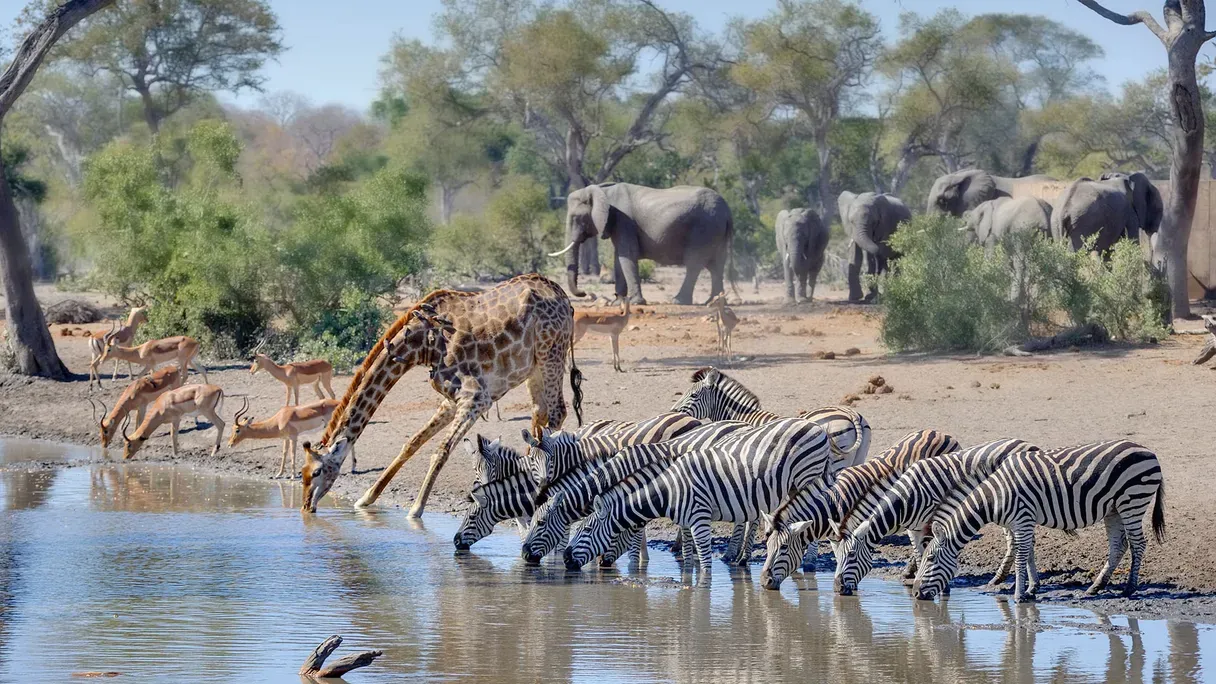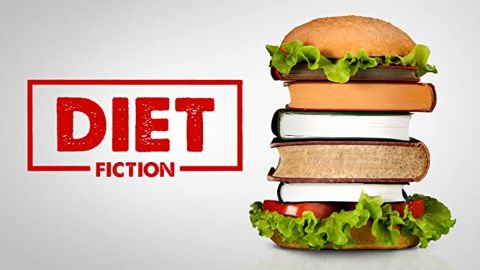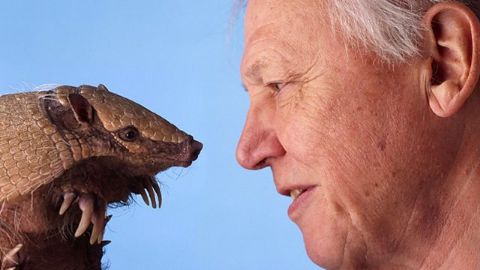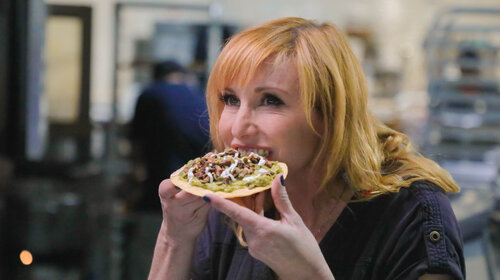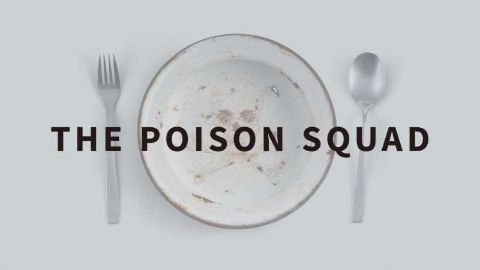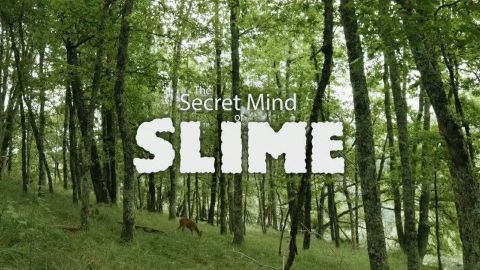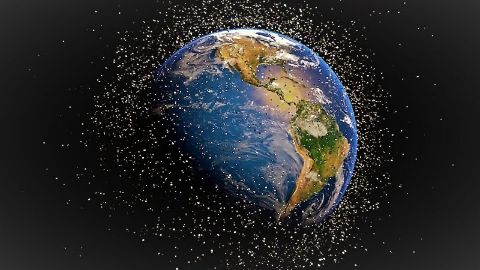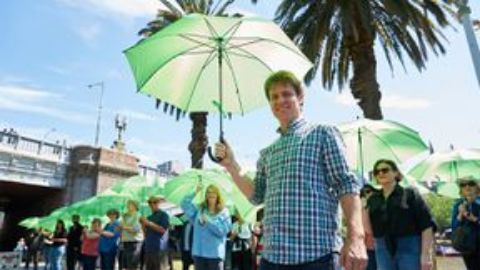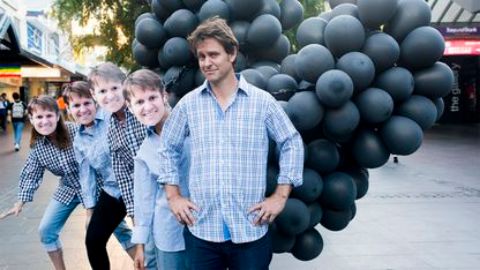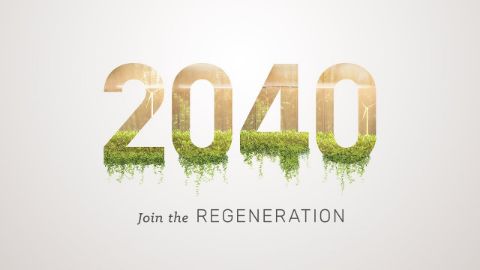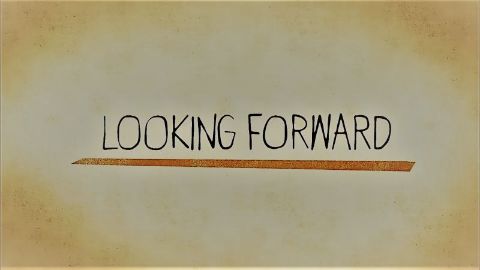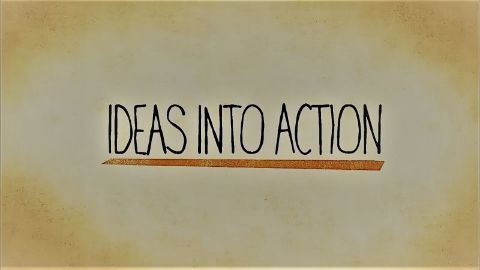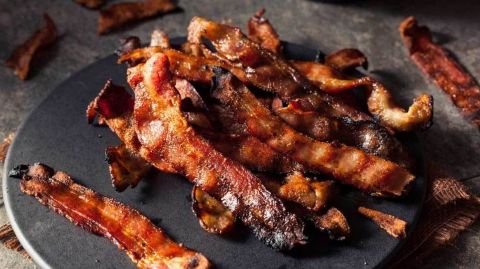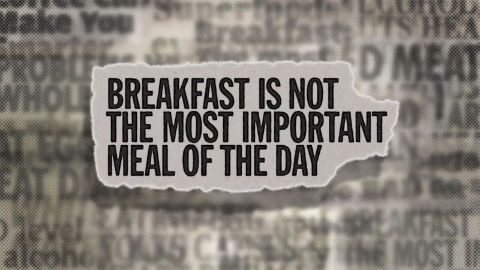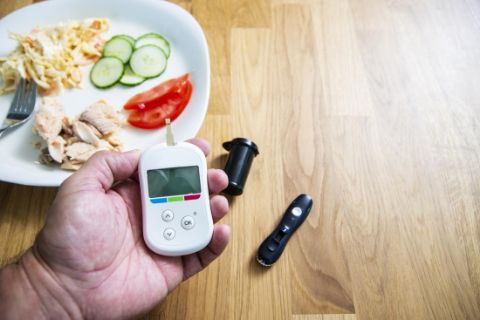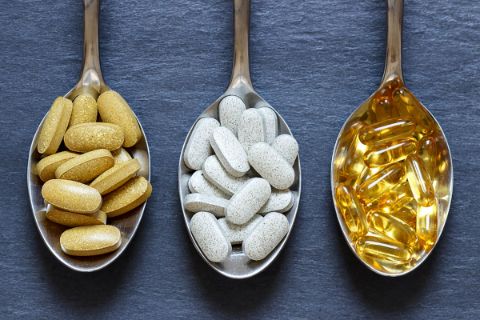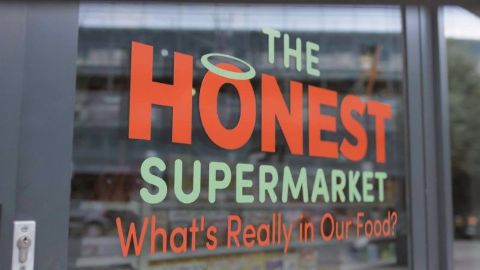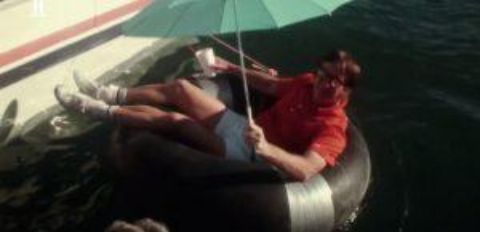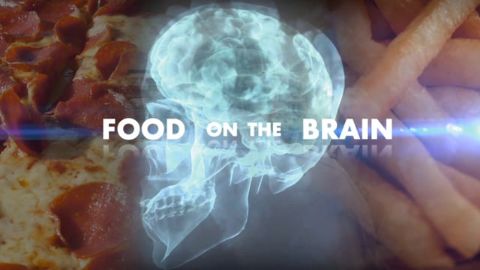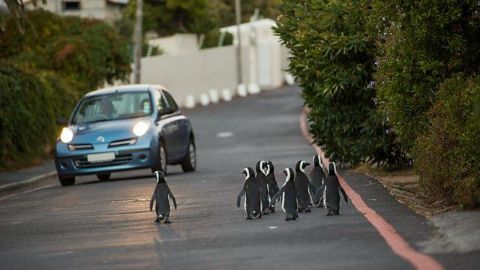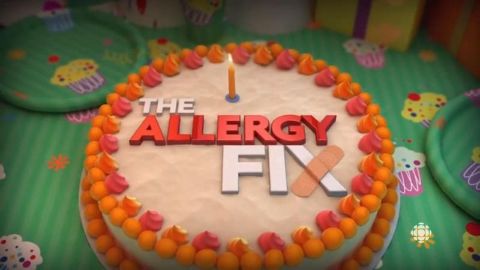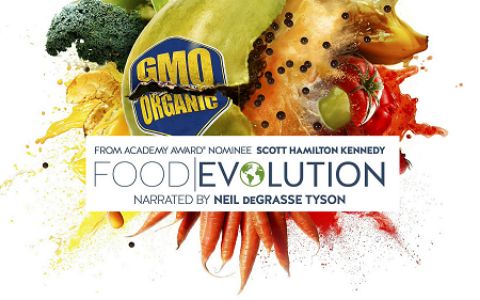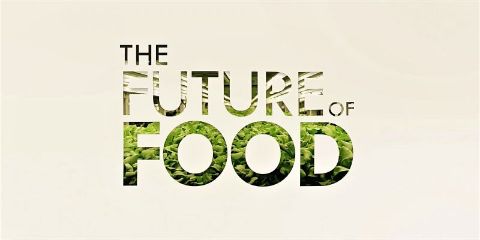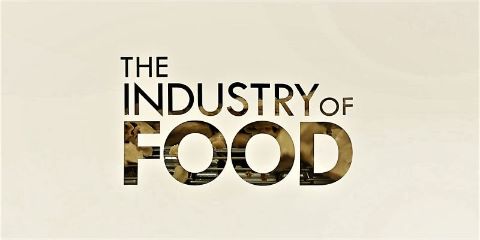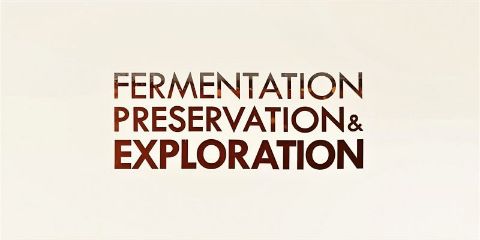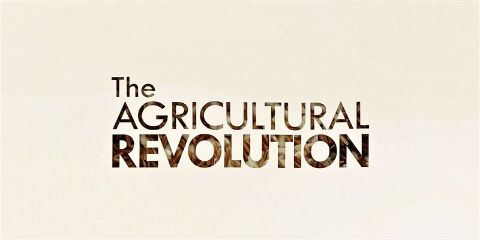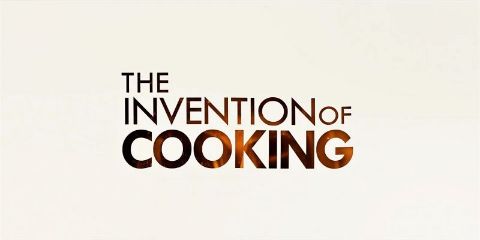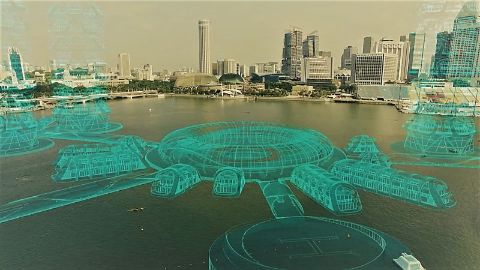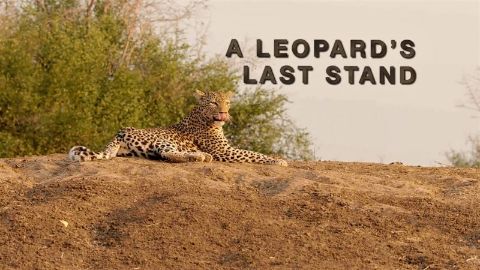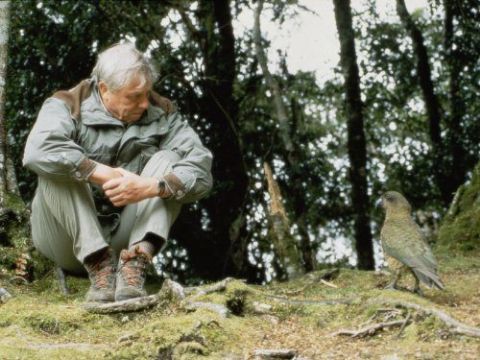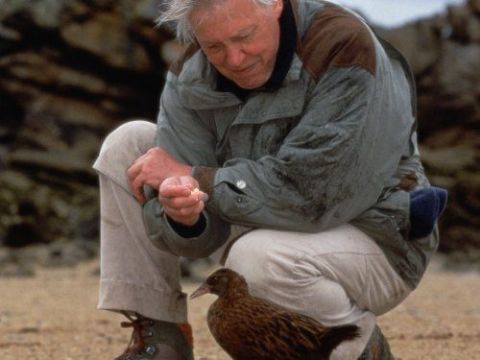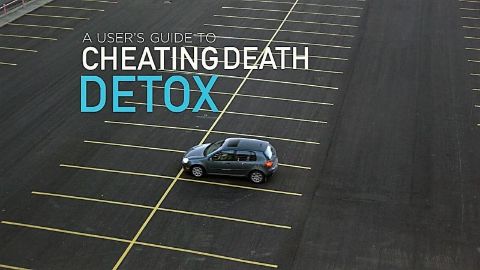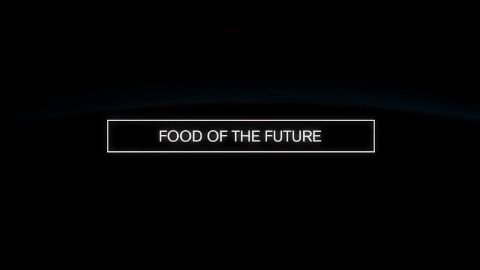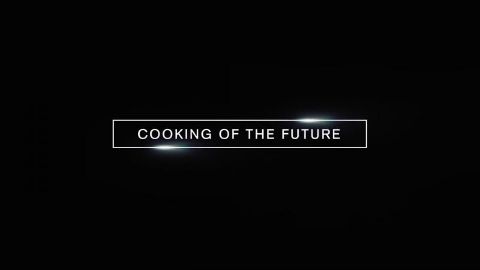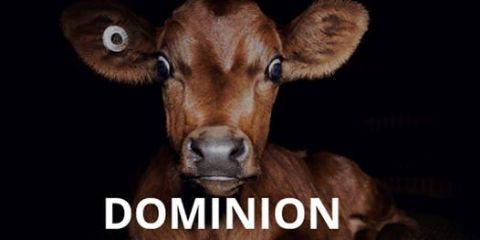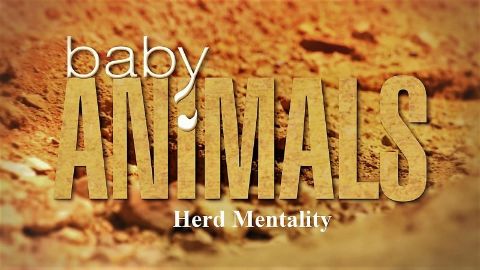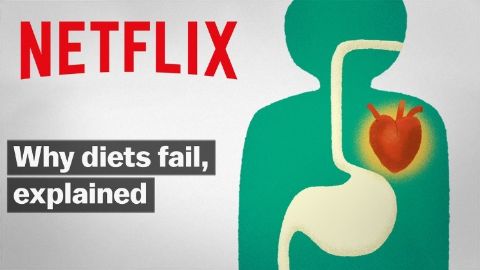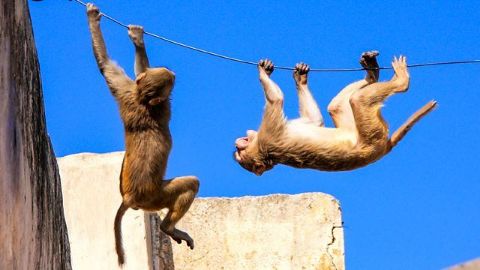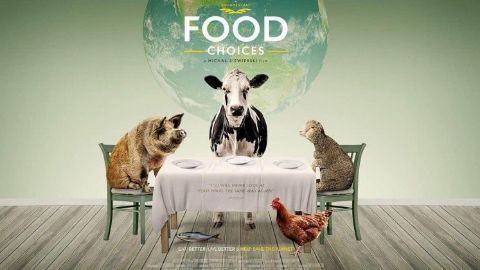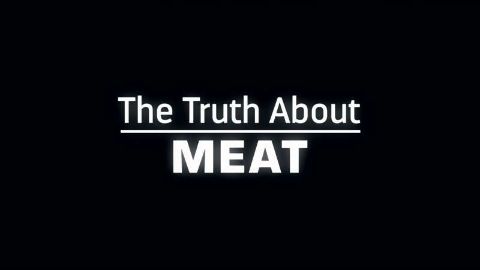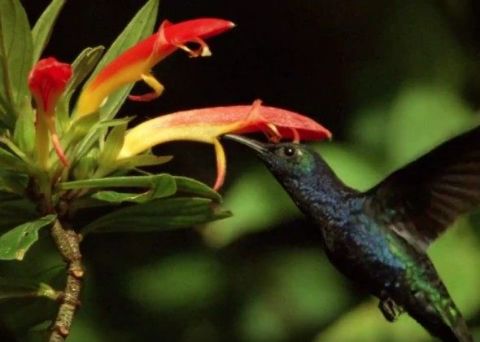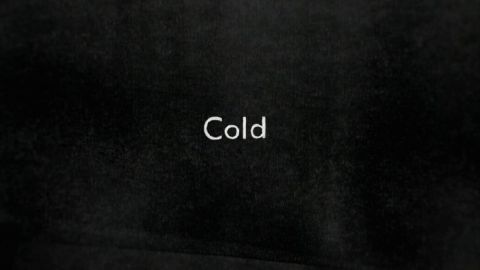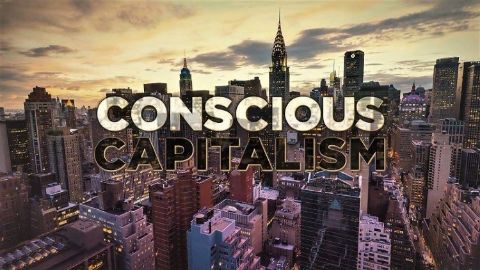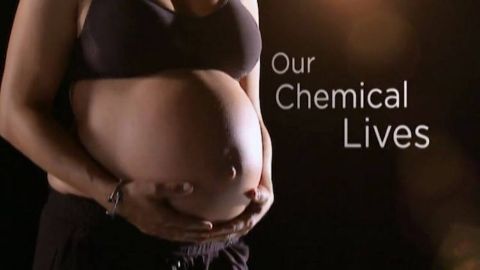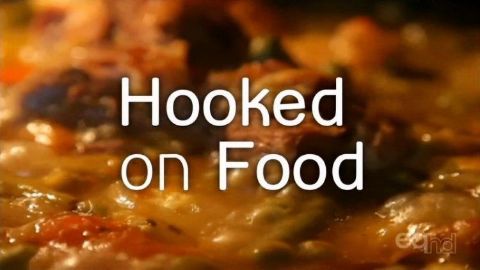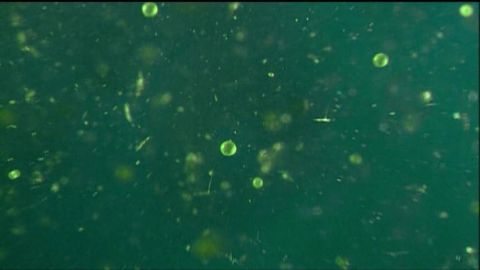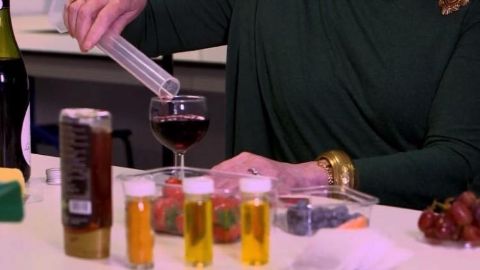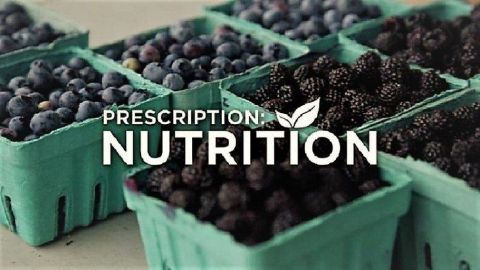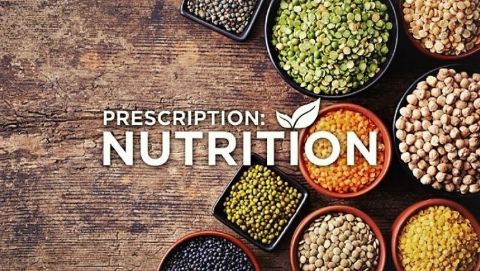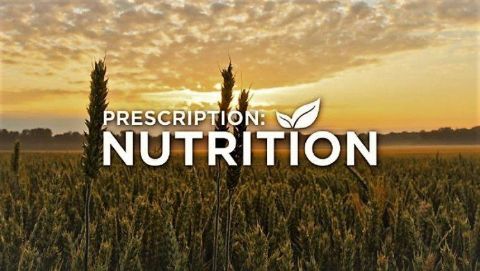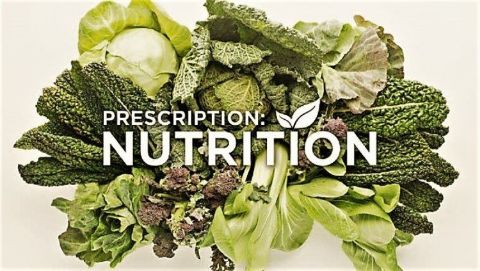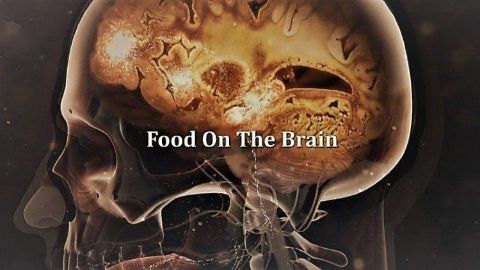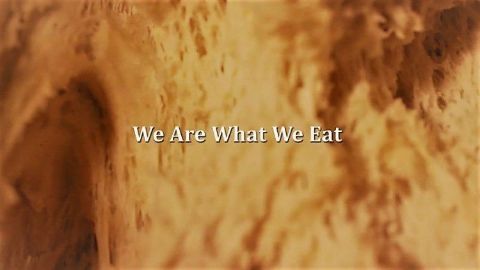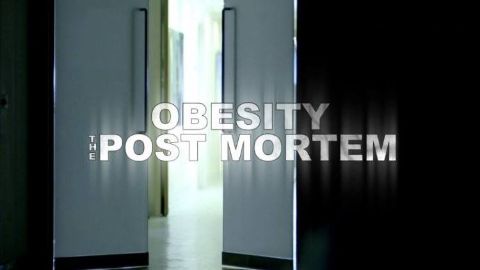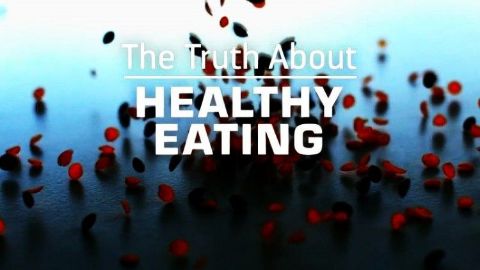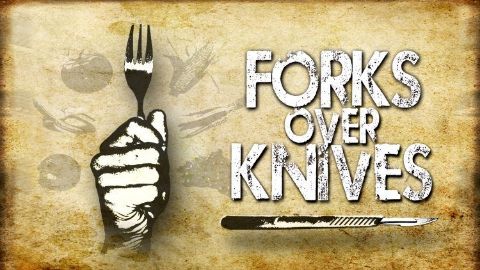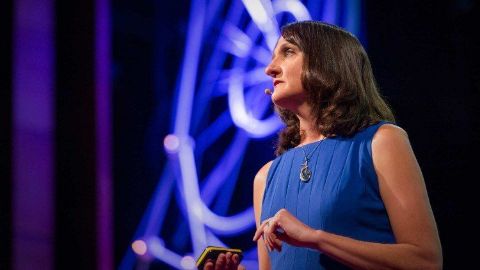food (100 videos) • 100 videos
In 1966, drought and an exploding population confronted India with the imminent threat of a severe famine that many scientists and intellectuals feared was a harbinger of global catastrophes to come, as the world's population outstripped its ability to produce food. India turned to Norman Borlaug, an unassuming plant breeder from Iowa whose combination of scientific knowledge and raw determination had made him a legend among a small handful of fellow specialists. The Man Who Tried to Feed the World recounts the story of the man who would not only solve India's famine problem, but would go on to lead a "Green Revolution" of worldwide agriculture programs, saving countless lives. He was awarded the 1970 Nobel Peace Prize for his work but spent the rest of his life watching his methods and achievements come under increasing fire.
2020 • People
Footage of animals that live at extremely close quarters with people, from tigers making a home in town to elephants stopping traffic for food. A small park in central Bangkok supports 300 giant lizards, whilst a flying squirrel in Taipei has made a cosy home in a school. Proboscis monkeys are forced to venture uncomfortably closer to humans, and swifts in Jerusalem face tough competition for nest sites.
Asia's jungles are exceptionally diverse, but whilst they provide shelter, food and opportunity, they are also full of dangers and hidden threats. In monsoon forests, tigers tenaciously hunt their prey, and prehistoric-looking rhinos play courtship games akin to kiss chase. In tropical rainforests, female orangutans must search far and wide to find their perfect mates. And in the little-known forests of Iraqi Kurdistan, a new Persian leopard population is growing amid minefields.
Why are ultra-processed foods so irresistible, and how they have come to dominate food culture? Dr Chris van Tulleken features interviews with former food industry insiders who talk openly about the way in which popular foods have been designed to be irresistible. Food companies go to extraordinary lengths to ensure their products connect with consumers - from using brain scans to assess the deliciousness of ice cream to carefully engineering the sound of a crunch. Ultra-processed foods are hyper-delicious and super-convenient, have long shelf lives and are extremely cheap. But a growing body of evidence is linking these products to our declining health.
2024 • Health
A look at mammals which have adapted to the changes humans have made to their environment, from sea lions competing with stray dogs for food in the fish markets of Chile to pig-tailed macaques in palm oil plantations in south east Asia. Plus, a look at how elephants have learnt to use the cover of darkness to venture into towns in search of a midnight feast, often leaving destruction in their wake.
Mammals with David Attenborough • 2024 • Nature
The ways in which wild animals have adapted to survive in human population centres, from cobras in India hunting in houses, to macaques in Bali stealing mobile phones to barter with temple staff in return for food. Rhinos walk through the streets of Sauraha, Nepal, while in Australia, tawny frogmouths find streetlights useful in catching prey, but have to avoid being eaten by household cats.
Planet Earth III • 2023 • Nature
The ultimate guide to invertebrates, with key biological themes to show a wide range of species. Chapter 1: The Bug Buffet Bugs are the base of the food chain, food for just about everything else, but to start the process, they too must eat. Just like the bigger animals of the plains, there are grazers, scavengers, and predators that hunt them, termites growing fungi, and bees making their own honey. Chapter 2: Breeding Rutting deer and flirting love birds might be what we think of with animal courtship, but even bugs need to breed, and they face all the same challenges of winning a mate and raising their young. Some display, some caress, others fight. There are even insects that care for their young. Chapter 3: Army Few creatures have complex levels of regimented society as social insects. Bees, termites, ants, and wasps can form armies to help them build elaborate homes, defend their territories, grow their own food, raise their young and hunt their prey.
2021 • Nature
The ever-enthusiastic Jeff Goldblum takes viewers on a tasty ride through ice cream's history. Jeff meets Ben & Jerry, and discovers the link between food and nostalgia onboard a US Navy aircraft carrier.
Food- human life can't exist without it. It's a city's most important source of energy. In New York alone, 8 million people consume 10,000 tonnes of food every day. Without new supplies, cities will run out of fresh food in a matter of days.
How Cities Work • 2013 • Technology
From crunchy crickets to nutty fly grubs, NOVA takes a tasty look at insect foods and how they could benefit our health and our warming planet. From Thailand to Texas, insect farmers are showing how the tiny critters stack up as an environmentally friendly alternative to beef protein and can, pound for pound, deliver better nutritional value than the finest steak. But will Americans overcome the “ick” factor and share the appetite of many cultures around the world for insect feasts?
NOVA PBS • 2021 • Environment
From desalination plants to the "Billion Oyster Project," witness humankind's efforts to meet our freshwater needs.
Age of Humans • 2021 • Environment
Science may soon make the dream of traveling to Mars a reality, but how will we live once we get there? How will we manage our basic human needs of food, water, and shelter on a planet known for its barren surface conditions, high radiation levels, and toxic dirt?
Becoming Martian • 2021 • Astronomy
The planet's current rate of meat consumption is unprecedented -- and becoming unsustainable. In the future, will meat alternatives be the answer?
Learn how rain transforms the area into a lush grazing pasture, creating an abundance of food. Moderate weather makes it harder for predators, as prey can migrate further. With plenty of food available, mating and birthing seasons have arrived.
Life at the Waterhole • 2021 • Nature
The film exposes the most popular diets on the planet as well as several misconceptions about weight loss and nutrition. The film follows the audacious filmmaker Michal Siewierski (Food Choices) in his treacherous journey.
2019 • Health
Through the worlds of a religious faster, an ultra-marathon runner, a farmer and a young girl beating allergies, go deep into the world of the human gut, which processes the fuel our bodies need to keep going.
Human: The World Within • 2021 • Health
David Attenborough concludes his documentary series with a programme about our closest animal relatives, the intelligent great apes, and finds out how their large brains enabled one of their kind, an upright ape, to go on to dominate the planet. David travels to the forests of Borneo to meet a remarkable orangutan with a passion for DIY and a talent for rowing boats. He shifts continent to Africa and takes part in a special nut-cracking lesson with a group of chimps learning survival skills. He discovers how food - and the ways apes find it - has been key to the evolution of our large brains.
The Life of Mammals • 2008 • Nature
Cheap, quick and tasty, fast food became a culinary craze in the 1950s. But has our quest for convenience created an irreversible health crisis?
History 101 • 2020 • Health
Is peace possible? In a world of conflict, people can live in peace. Kari goes in search of communities across Israel that are living in peace, and discovers that it is the young people, with their curiosity of their common history, their sharing of food and cuisine, and their desire of intersectionality in sports and music, who are striving for peaceful coexistence, despite the ongoing conflict around them
Crash Test World • 2021 • Travel
How to feed our ever growing, hungry planet? Populations continue to grow, but many food sources are finite, and dependent upon a delicate balance. With more than 2 BILLION people being added to the world's population by 2050, feeding the planet is one of the biggest challenges this generation has to face. Kari meets with people in the US with who have some innovative food solutions. From invigorating bee populations to edible insects she will seek out leaders answering the question: “How do we continue to feed our planet?”
Crash Test World • 2021 • Travel
MasterChef judge Gregg Wallace and mathematician Dr Hannah Fry take over a restaurant and invite five special guests to enjoy a dinner party with a difference, where they will be scored on the carbon footprint of every dish they choose. Food accounts for a third of all greenhouse gas emissions, so making informed choices about what we eat is more important than ever. Diners Sara Pascoe, Amol Rajan, Nikki Fox, Desiree Burch and Matthew Fort choose from a menu of tantalising treats, each of which tells its own environmental story. But will they be able to sort the eco-goodies from the eco-nasties hidden in each course? Gregg is with the kitchen team preparing delicious dishes and uncovering tips and tricks we can all use to cook more sustainably. Hannah is working with environmental scientists to reveal the carbon footprint of every single item on the menu and uncovering the latest research that can help us enjoy the food we love that doesn't cost the Earth.
Horizon • 2021 • Environment
By the close of the Industrial Revolution, the American food supply was tainted with frauds, fakes and legions of new and untested chemicals, dangerously threatening the health of consumers. Based on the book by Deborah Blum, The Poison Squad tells the story of government chemist Dr. Harvey Wiley who, determined to banish these dangerous substances from dinner tables, took on the powerful food manufacturers and their allies. Wiley embarked upon a series of bold and controversial trials on 12 human subjects who would become known as the “Poison Squad.” Following Wiley’s unusual experiments and tireless advocacy, the film charts the path of the forgotten man who laid the groundwork for U.S. consumer protection laws, and ultimately the creation of the FDA.
American Experience • 2020 • Health
Join coffee roaster Dean Cycon and food lover Judith Jones to explore America’s love affair with the red bean that arrived on American shores not long after the Pilgrim Fathers themselves. “Coffee: The Drink That Changed America” explores the brew’s amazing story, from its origins in the Middle East to the 21st century coffee palaces in America.
2018 • History
Meet slime molds: the brainless blobs that can learn, make decisions, and navigate mazes. Who says you need brains to be smart? Extremely primitive life-forms called slime molds can navigate mazes, choose between foods, and create efficient networks—no brain required. New research on these organisms, which are neither plant nor animal, could help reveal the fundamental rules underlying all decision making.
2020 • Nature
Think NASA's only for the stars? Think again. The space race has played a colossal part in our daily lives. From online dating to the freshness of the food we consume. The quest for the stars has created tech so woven into our everyday existence, without it, the world would simply unimaginable.
A World Without NASA • 2019 • Technology
We all have a food footprint, but what foods create greenhouse gases? Craig Reucassel looks at different carbon footprints of the various foods we eat, and learns about the importance of where our food actually comes from.
Fight For Planet A: Our Climate Challenge • 2020 • Environment
Craig Reucassel tackles one of our planet's biggest challenges: climate change, exploring where our energy comes from, health effects of transport and travel emissions plus the carbon footprint of what we eat.
Fight For Planet A: Our Climate Challenge • 2020 • Environment
Practical solutions to environmental concerns are addressed with the hope that the filmmaker's daughter, 21 years old in the year 2040, will face a hopeful future.
2019 • Environment
Man uses plants to feed, heal and clothe himself, to build his world and even to alter how he feels. The use of plants like corn, tobacco and cotton become such an important part of our lives that they play a central role in our evolution.
Mankind Decoded • 2013 • History
Maitre d' and Extraordinary Places to Eat host Fred Sirieix and GP Zoe Williams open a restaurant with a difference, welcoming 20 unsuspecting diners for a slap-up meal. It all sounds normal enough, but this restaurant has something unexpected back of house - a functioning gym, where a group of fitness fanatics are poised on exercise bikes, treadmills and rowing machines, ready to burn off every single calorie ordered and consumed by the diners.
Come see how an organization founded by 50 street beggars is now building a brand new town in Kenya.
Design with the Other 90 Percent • 2011 • Design
A changing environment and shifting population patterns present significant new demands on cities worldwide. Luckily, people are coming up with ingenious answers.
Design with the Other 90 Percent • 2011 • Design
From the simple, to the profound to the life changing, see how design ideas and solutions are making a difference in the lives of millions around the world.
Design with the Other 90 Percent • 2011 • Design
See how designers and innovators around the world are tackling issues of urban poverty with determination and ingenuity.
Design with the Other 90 Percent • 2011 • Design
In this episode, they unpick the dramatic shift in advice on drinking alcohol. After warnings that there's no longer any safe limit, what's the truth on whether it's still ok to have a drink? And what about all the previous reports that suggest the occasional drink might actually be a good thing? The shocking secrets of how Britain snacks are revealed, but it seems the mid-afternoon energy slump that prompts millions to reach for treats may just be all in the mind. Also, the controversial 5:2 diet is put to the test. With the experts still divided, could regular fast days really be the key to losing weight?
Food: Truth or Scare • 2016 • Health
In this episode, they investigate whether we should really be giving up bacon and sausages, after new research suggested they're bad for us. The programme explores why eggs, for years demonised as unhealthy, are now firmly back in fashion and apparently now about as healthy as you can get. Could butter or dripping be next? Plus why white bread isn't necessarily as unhealthy as assumed.
Food: Truth or Scare • 2016 • Astronomy
Gloria Hunniford and Chris Bavin unravel the truth behind food stories that have dominated the front pages. In this episode, they discover how it's not just what you eat that can make a difference to how you feel, but when you have it and how you cook it. The truth behind the headlines about the dangers of cooking with olive oil, and barbecues, is revealed. Several long-established beliefs are put to the test, with experiments to see whether three meals a day is the most effective way to fuel your body, and if breakfast really is the most important meal of the day.
Food: Truth or Scare • 2016 • Health
Gloria Hunniford and Chris Bavin make sense of which foods we should and shouldn't be eating. Gloria reveals her own experience of being diagnosed as pre-diabetic. With headlines suggesting millions are at risk of developing diabetes, she exposes how changing your diet can stop the condition in its tracks, and perhaps even reverse it. Chris unpicks which fruit and veg are best to eat. After years of working as a greengrocer, even he's unsure if he's eating enough, and how those five-a-day really stack up.
Food: Truth or Scare • 2016 • Health
Following reports that taking extra vitamins is pointless and possibly even dangerous, Gloria discovers whether the vitamins she takes each day are really necessary or if she can get all the nutrients she needs from her food? Chris tests out a new meal plan to see what difference changing what you eat makes to how you power through the day, and even how you sleep.
Food: Truth or Scare • 2016 • Health
For every pound we spend on food shopping, 77p goes to the supermarkets, giving them a huge influence over what we eat. But can we trust the supermarkets to tell us the truth about what we are buying and how it was produced? Or do their profits come first? In an experiment to discover the hidden truths about our everyday foods, Horizon has built the first ever truly 'honest supermarket'. Drawing on the latest scientific research and leading experts from across the UK, the team have built a supermarket where the products are labelled with the real story of how they are produced and their effect on us and the environment. We invite the British public to come in and discover the truth about their favourite foods. And in our on-site lab, new scientific discoveries reveal the food facts the supermarkets aren't telling you. Presented by Dr Hannah Fry and dietician Priya Tew, The Honest Supermarket takes a cold hard look at what's really going on with the food we eat. From new research that reveals you're likely to be ingesting plastic particles along with your bottled water to the lab tests that uncover the disturbing truth about just how old your 'fresh' supermarket fish really is… You'll never look at the food on your supermarket shelves in the same way again.
Counting down from 75 to 63 we showcase great works of art and scientific feats in space, civil wars, sieges and environmental crises. In Episode Three we see the construction of the Panama Canal that created a passage between two continents, the invention of genetically modified crops that changed the future of food, the kidnapping of Lindbergh's baby, and a Battle of the Sexes on the tennis court.
Stephen Nolan travels to the USA, the world leader in scientific research, to learn about the inner workings of the brain and the impact that the junk food we eat everyday has on it.
2015 • Health
More than a billion people around the world commute into cities each day, and they are not alone. The world's wildlife is commuting too. A steady flow of animals journey in and out of cities to find food and shelter or to start a family. Leaving the wilderness they must overcome the unique challenges that the urban world throws at them to benefit from the opportunities on offer. This episode explores whether the secret to an animal's success in this fast-changing world is to keep one foot in the wild and one in the city, becoming a wild commuter. It seems that all over the world animals are finding that the city can offer opportunities that are harder to come by in the natural world. Some, like African penguins, whose population has plummeted by 80 per cent in the last 50 years, find shelter in the city. By nesting in Cape Town they are safer from predators, and with relatively easy access to their fishing grounds they have the best of both worlds. Many other animals commute into cities because they are filled with food. In St Lucia, South Africa, that includes hippos. Able to eat up to fifty kilograms of grass in a single sitting, they have developed a taste for the short, manicured lawns and come to town every night to dine out. St Lucia's human residents have learnt to give the hippos the space they need during their night-time raids. Black bears need to eat more than 20,000 calories a day to survive their six-month hibernation through winter, and using their acute sense of smell they can easily track down leftovers. In North America they come into towns and cities in search of food. Many animals displaced from their natural habitat are now using their wild skill set in the city to help fulfill their needs. Could this be the beginning of a new and very modern migration?
Cities: Nature's New Wild • 2018 • Nature
Supermarkets are stocked with fruit year round in a global permanent summertime, but despite its accessibility, have we lost the diversity that makes it so special? The second episode of The Fruit Hunters will look at what happens when we abandon the Garden of Eden for an industrialized monoculture. In lush jungles of Borneo, Bala Tingang, an elder of one of the last hunter-gatherer tribes, lives of the wild fruits that are the key to his tribe's survival. And yet, all around the world, natural diversity is being replaced with monocultures, plantations of only one variety, bred for long shelf life and transportability rather than their taste or health properties. Not only is this lost of diversity impoverishing our taste buds, but it has catastrophic implications for our food security. In the vast uniform banana fields of Honduras, Juan Aguilar, a banana scientist, frantically tries to breed a banana resistant to a deadly fungus.
The Nature of Things • 2013 • Nature
If you’ve been to a children’s birthday party lately, chances are at least one of the little guests had a portable needle loaded with epinephrine. Its standard equipment for a growing generation of highly allergic kids: more than three times as many children have food allergies now than twenty years ago. And one out of every three children is now allergic to foods, animals, or plants. Something puzzling, and frightening, is going on with our immune systems. The Allergy Fix travels across Canada and to the US, the UK and Germany to investigate why allergies are on the rise – and what’s being done about it.
The Nature of Things • 2014 • Health
From Oscar-nominated director Scott Hamilton Kennedy (The Garden) and narrated by Neil deGrasse Tyson, Food Evolution investigates the brutally polarized debate surrounding GMOs and our food. Traveling from Hawaiian papaya groves to banana farms in Uganda to the cornfields of Iowa, Food Evolution wrestles with the emotions and the science driving one of the most heated arguments of our time.
2018 • Health
Industrialized and processed food has dominated the last century. Now, the question is, what's next? We go around the world to meet pioneers in urban farming, veganism, and insect protein production to find out what will be the future of food.
The History of Food • 2018 • History
Industrialization brought the second great food revolution. Over the brief span of the 20th century, agriculture underwent greater change than it had since it was first practiced some 12,000 years ago.
The History of Food • 2018 • History
Just as humans have always sought food to survive, we have also sought the means to preserve that food. Right from the very moment of a kill or a harvest, food begins to break down. With preservation, we can plan for times of scarcity during times of plenty.
The History of Food • 2018 • Health
From the first row of planted crops, the practice of agriculture rendered man's hunter-gatherer lifestyles obsolete in favor of settled life and stable food supplies. This led to a skyrocketing population and enabled humans to develop skills outside of gathering the food needed to survive.
The History of Food • 2018 • Health
Humans have depended on fire for millennia, but do we fully understand the impact it has had on our diet? When our hunter-gatherer ancestors learned to harness this tool, it ignited a culinary and cerebral revolution believed to be one of the most important factors in our evolution.
The History of Food • 2018 • History
By 2065, the waters surrounding the island where Singapore lays may be dramatically impacted. Under such circumstances, living on the sea in floating communities would be commonplace while growing massive crops of food and generating power would become crucial to the city’s survival.
Futuropolis: Mapping the City of Tomorrow • 2018 • Technology
Kamuti the leopard has reigned supreme over her corner of the Luangwa Valley for 10 years. She's defended her territory, hunted antelope for food, and even kept the nearby pride of lions at bay. But a younger leopard is determined to replace her. Can she survive one more challenge, or will this be her last stand?
Africa's Hunters • 2015 • Nature
Birds eat more than berries; this episode takes a look at birds that eat meat.
The Life of Birds • 1998 • Nature
Discovering the role of beaks within various species of birds.
The Life of Birds • 1998 • Nature
What does it take to flush all the bad stuff from your body after a week-long bender? Or after several years of eating junk food? Can you atone for your health sins and start fresh?
A User's Guide to Cheating Death • 2017 • Health
This episode will reveal the ways in which our eating habits will be revolutionized: vegetable proteins, urban farming, connected supermarkets, personalized food, new flavour experiences and more.
Dream the Future • 2017 • Technology
Cuisine meets a vital need, but it is also a way of expressing pleasure, emotions, and sharing. With an hour on average spent everyday cooking, it is also at the heart of our daily lives. How will cooking respond to environmental challenges in the future?
Dream the Future • 2017 • Technology
Dominion uses drones, hidden and handheld cameras to expose the dark underbelly of modern animal agriculture, questioning the morality and validity of humankind's dominion over the animal kingdom. While mainly focusing on animals used for food, it also explores other ways animals are exploited and abused by humans, including clothing, entertainment and research.
2018 • Economics
For many animals, group living offers protection, better food, and more social opportunities. For their young, it's a valuable education. From flamboyant flamingo mating dances, to elephant calves growing up under the watchful eye of the group matriarch, peer into some of nature's most tight-knit social groups.
Baby Animals • 2016 • Nature
They might be young and vulnerable, but every second of these baby animals' lives is a training ground, preparing them for their destiny as an elite predator. Watch as young lions, coyotes, cheetahs, and foxes engage in the kind of play that prepares them for life at the top of the food chain.
Baby Animals • 2016 • Nature
Scientists are working to understand and even slow the aging process.
Explained examines why diets are often unsuccessful. It looks at the science that suggests that low carb, low fat, and body type diets as well as supplements and detoxification regimes simple do not work in helping most people lose weight. While the diet industry pushes us to avoid calories the food industry encourage us to eat more of them.
Liz meets the animal rogues doing whatever it takes to find food. From kleptomaniac crabs on a stealing spree, tigers deceiving their prey and chimpanzees waging war on their neighbours, the need for a square meal can drive many animals to some seemingly extreme behaviour. Liz sets out to discover the science behind these tactics, joining experts making new discoveries around the world. She sees macaques using psychology to pull off a theft, a spider conning its prey with a chemical disguise and the wedge-billed hummingbird stealing nectar from under the beaks of its rivals. When it comes to finding food, this outrageous behaviour is actually an ingenious way to get ahead.
Animals Behaving Badly • 2018 • Nature
Food Choices focuses on how the food we consume affects not only our personal health, but that of the entire planet. Filmmaker Michael Siewierski takes an in-depth look at how the consumption of animal products has a long-lasting, negative effect on the earth’s biosphere. Not only does he report on facts relating to the unethical treatment of animals raised for human consumption, but he also addresses the addition of genetically modified organisms (GMOs) and antibiotics to animal feed. This trickle-down effect results in the poisoning of both our bodies and the planet.
2016 • Health
Lions, hyenas, cheetahs, and the highly intelligent African painted dog all have different, but brutally efficient, hunting instincts. Meet these intimidating rulers of the African plains and learn the secrets of their secure reign at the top of the natural food chain.
Attack and Defend • 2016 • Nature
Fresh or processed, white or red - how does meat measure up? It's been getting a lot of bad press recently with new links to cancer and heart disease. But 98 per cent of us in the UK are still meat eaters. Chris Bavin, a greengrocer by trade and a carnivore by nature, wants to know if he can keep meat in his diet and stay healthy. He teams up with top scientists to put meat under the microscope and examine it as never before. They follow 40 volunteers on a groundbreaking study to find out exactly how much meat is good for us, test whether paying more for chicken makes it any better for us, discover a way to dramatically reduce the health risks associated with processed meats and reveal an unlikely lean supermeat that won't break the bank.
2016 • Health
The search for food in the animal world. With leaves defended by poisons and seeds clad in thorns, animals fight back in very innovative ways.
Trials of Life • 1990 • Nature
Only in the last 200 years have humans learned how to make things cold. Steven Johnson explains how ice entrepreneur Frederic Tudor made ice delivery one of the biggest export business in the U.S. and describes the place where Clarence Birdseye, the father of the frozen food industry, experienced his eureka moment. He also travels to Dubai to see how mastery of cold has led to penguins in the desert. From IVF to food, politics and Hollywood to human migration, the unsung heroes of cold have led the way.
How We Got to Now • 2014 • Technology
Conscious Capitalism is a new twist on the system that fuels wealth and industry in America and for many countries around the globe. Thought leaders, along with the leaders of two corporations — Whole Foods Market and Waste Management — give us an insider’s look at the new face of capitalism.
2016 • Economics
Thousands of chemicals are used in everyday products – in our water, our food and in the air we breathe. It’s the chemical soup of modern life and it’s virtually impossible to escape them. Is there adequate regulation and testing, or are we in the midst of an uncontrolled, human experiment?
Catalyst: Season 1 • 2015 • Health
In recent years, eating has become a health hazard. We love our potato chips, candy, and fast food…however bad they are for our health. And we still continue to consume these products in ever greater quantities. After the war on tobacco, a new battle is underway: the fight for healthier food. So, why do we consume so much processed food and why are we so hooked on it? How exactly does the relentless agribusiness keep us coming back for more? How does it mold our tastes, influence our cravings and feed our addictions? The few independent researchers who dare raise concerns about processed food are often ignored. Opposite them, the giant multinationals who fund the majority of research into nutrition are highly organized, and present at every level of decision-making. They are even involved in government campaigns on nutrition and health. Remi, our French-American reporter, will investigate current eating habits in Europe and America, and meet those involved in this new global food war. We will hear from scientists tracking sugar addiction, the businessmen playing on our weaknesses, legal experts preparing to challenge the might of the industry, and simple lovers of good food. A compelling documentary that reveals the latest ways the agribusiness is trying to tempt us, and the ways we as consumers can try to resist.
2013 • Health
From the food on our tables to the fuel in our cars, crude oil seeps invisibly into almost every part of our modern lives. Yet many of us have little idea of the incredible journey it has made to reach our petrol tanks and plastic bags from its origins millions of years ago.
2007 • Nature
Gloria Hunniford and Chris Bavin investigate which of the claims about foods said to help people live longer are true. The effects of booze on the brain are revealed, there are surprises as the team exposes how food affects migraines,
Food: Truth or Scare • 2017 • Health
Episode 4 – reveals the surprising impact sugar can have on our health. The added sugars in most packaged foods are one of the deadliest ingredients in our modern diet. But the naturally-occurring sugars, antioxidants and nutrients found in most fruits and berries make these sweet treats some of the healthiest foods on our planet.
Prescription: Nutrition • 2017 • Health
Episode 3 – spotlights some of nature's tiniest packages that deliver a powerful protein punch. Protein is an essential component of our diet, and for centuries, products of animal origin were thought to be one of the best sources. But, new evidence proves diets high in beans are one of the most important dietary predictors of survival for older people around the world.
Prescription: Nutrition • 2017 • Health
Episode 2 – exposes how the industrial revolution opened the floodgates for highly-processed convenience foods that became "our daily bread." But those pseudo-grains are known to contribute to chronic disease. Natural, whole grains support longevity and lower the risk of heart disease. Grain of Truth also explores the debate over gluten as a dietary evil.
Prescription: Nutrition • 2017 • Health
Episode 1 – explores the extraordinary health benefits of plant-based diets and the amazing revolution taking place on how we approach our relationship with food. Dr. Greger outlines how a diet comprised of whole, plant-based foods can dramatically improve well-being and longevity.
Prescription: Nutrition • 2017 • Health
Michael Mosley and James Wong explore the effect that our food has on our most important and, in terms of energy consumption, our greediest organ. It influences our diet by generating cravings for foods such as fat - the most energy-rich food of them all. James heads off to Peru to reveal the surprising link that fat-rich, indulgent chocolate has with breast milk. Sometimes these cravings almost become an addiction - like coffee for example. So we visit a remarkable lab where a team is studying the effect of caffeine on bees and how that may help explain the hold that caffeinated drinks have over us. Together, Michael and James take on some of the hottest chillies on the planet to show what the burn does to our brains. Using the latest imaging techniques and incredibly detailed specialist photography, this is a whole new way of thinking about our relationship with food and the powerful effect it has on our minds.
The Secrets of Your Food • 2017 • Health
Michael heads to Spain to search for some of the most powerful tastes on the planet, whilst James travels high in the Peruvian Andes to discover how a bitter potato - a cousin of the humble spud - has been tamed to help the inhabitants survive the extreme altitude. Using the latest imaging techniques to take us inside our food, right down to the molecular level, Michael and James offer us a whole new way of thinking about taste: far more than being just delicious, it's actually a matter of survival.
The Secrets of Your Food • 2017 • Health
In the opening episode, they explore how this chemistry fuels and builds our bodies. Michael begins by trying the first meal most of us enjoyed, human breast milk, which contains everything a baby needs - fats, carbs, vitamins and minerals. As we grow, we continue to seek the same chemistry in our diet but from a wide variety of scrumptious fare as Michael and James discover. In San Francisco, they unravel why sourdough bread is so good for us, in the Philippines, they learn how a river weed - rice - has become a comforting staple food, and in Bulgaria, they discover why letting your mushrooms sunbathe may help you get a calcium boost from your dairy food.
The Secrets of Your Food • 2017 • Health
Imagine if the food you eat could 'clean' your body and make you feel well. Dr Giles Yeo investigates the latest diet craze and social media sensation - clean eating. In a television first, Giles cooks with Ella Mills, the Instagram entrepreneur behind Deliciously Ella, one of the most popular brands associated with clean eating, and examines how far her plant-based cooking is based on science. She tells him clean has lost its way: "Clean now implies dirty and that's negative. I haven't used it, but as far as I understood it when I first read the term, it meant natural, kind of unprocessed, and now it doesn't mean that at all. It means diet, it means fad". Giles sifts through the claims of the Hemsley sisters, who advocate not just gluten-free but grain-free cooking, and Natasha Corrett, who popularises alkaline eating through her Honestly Healthy brand. In America, Giles reveals the key alternative health figures whose food philosophies are influencing the new gurus of clean. He discovers that when it comes to their promises about food and our health, all is not always what it appears to be. Inside a Californian ranch where cancer patients have been treated with alkaline food, Giles sees for himself what can happen when pseudoscience is taken to a shocking extreme.
Is sugar the new tobacco? How did the food industry get us to stop asking the question: is sugar toxic? It all starts with a secret PR campaign dating back to the 1970s. For forty years, Big Sugar deflected all threats to its multi-billion dollar empire, while sweetening the world's food supply. As obesity, diabetes, and heart disease rates skyrocket, doctors are now treating the first generation of children suffering from fatty liver disease. The sugar industry is once again under siege. They dodged the bullet once. Can they do it again?
2015 • Health
Reveals just how dangerous too much fat is to our most vital internal organs. The programme follows a specialist pathology team as they conduct a post-mortem on the body of a 17-stone woman whose body was donated to medical science. Their findings, as they dissect the body and its organs, are startling, exposing the devastating impact of obesity with stunning visuals and fascinating medical facts. Morbid obesity reduces life expectancy by an average of nine years and is blamed for over 30,000 deaths in the UK every year. With 65 per cent of people already overweight or obese, this extraordinary film is a powerful contribution to the debate about fat, food, lifestyle and how the health service will cope with the growing obesity crisis.
2016 • Health
Fiona Phillips teams up with leading scientists to look at how to eat and drink to good health, and she uncovers some surprising truths. She reveals which cheap, everyday foods can give us all the benefits of so-called superfoods at a fraction of the price and why frying can be the healthiest way to cook. Fiona becomes a human guinea pig to test some of the top-selling health drinks and supplements. She investigates whether antioxidant smoothies really give us the healthy boost we think and discovers why multivitamin pills might do us more harm than good. In a unique experiment with scientists from Aston and Liverpool John Moores universities, she sets out to find the healthiest breakfast, and discovers why we'd be better off with bacon and eggs rather than cereal and fruit. To find out whether we can really detoxify our bodies, she puts some popular detox foods and drinks to the test and reveals why we're better off with fresh foods and the odd glass of wine.
2016 • Health
Examines the profound claim that most, if not all, of the degenerative diseases that afflict us can be controlled, or even reversed, by rejecting our present menu of animal-based and processed foods.
2011 • Health
A countdown show looking at the shocking truth behind what we eat and the often dangerous and misguided methods we adopt in order to lose weight. Scientists, industry experts and exponents discuss the pros and cons of fad diets, 'healthy' foods and extreme exercise regimes. We all know about the benefits of exercise, good diet, looking good and living a healthy lifestyle, but most of the things that are good for us can bring side-effects that are precisely the opposite. Incontinence, infertility, infected genitalia, energy drink madness, hip replacements and even death are commonplace among the beautiful people – as are botched surgeries, extremely dangerous self-harming diets and bizarre exercise programmes.
2013 • Health
In the US, 80% of girls have been on a diet by the time they're 10 years old. In this honest, raw talk, neuroscientist Sandra Aamodt uses her personal story to frame an important lesson about how our brains manage our bodies, as she explores the science behind why dieting not only doesn't work, but is likely to do more harm than good. She suggests ideas for how to live a less diet-obsessed life, intuitively.
In this second episode Dr Alice Roberts charts how our ancestors’ hunt for food has driven the way we look and behave today – from the shape of our face, to the way we see and even the way we attract the opposite sex.
Wildlife documentary. A look at the trials and challenges young animals face, from taking their first steps, finding food and avoiding predators to finally leaving home.
Surgeon Gabriel Weston discovers the surprising truth about why so many people are piling on the pounds, and how to fight the fat epidemic. She discovers the hidden battles of hormones that control people's appetites, and sees the latest surgery that fundamentally changes what a patient wants to eat by altering how their brains work. Gabriel is shocked to find out that when it comes to being overweight, it is not always your fault you are fat.
Our planet was once populated by megafauna, big top-of-the-food-chain predators that played their part in balancing our ecosystems. When those megafauna disappear, the result is a "trophic cascade," where every part of the ecosystem reacts to the loss. How can we stay in balance? George Monbiot suggests rewilding: putting wolves, lions and other predators back on top -- with surprising results.
When you picture the lowest levels of the food chain, you might imagine herbivores happily munching on lush, living green plants. But this idyllic image leaves out a huge (and slightly less appetizing) source of nourishment: dead stuff. John C. Moore details the "brown food chain," explaining how such unlikely delicacies as pond scum and animal poop contribute enormous amounts of energy to our ecosystems.
In recent years, researchers have started to understand why people love the foods they do, and that there may be a way to make snacks taste sweeter without adding any extra sugar – and it's all down to a trick that happens in the brain. This film meets a scientist who has grown a tomato that is sweeter and juicier than anything likely to be found on a supermarket shelf, and follows those hoping to become elite, professional tasters.
Michael Mosley has set himself a truly ambitious goal: he wants to live longer, stay younger and lose weight in the bargain. And he wants to make as few changes to his life as possible along the way. He discovers the powerful new science behind the ancient idea of fasting, and he thinks he's found a way of doing it that still allows him to enjoy his food. Michael tests out the science of fasting on himself - with life-changing results.
Hank Green talks about the issues of rising global population.
2012 • People
When you eat something loaded with sugar, your taste buds, your gut and your brain all take notice. This activation of your reward system is not unlike how bodies process addictive substances such as alcohol or nicotine -- an overload of sugar spikes dopamine levels and leaves you craving more. Nicole Avena explains why sweets and treats should be enjoyed in moderation.
2014 • Health





